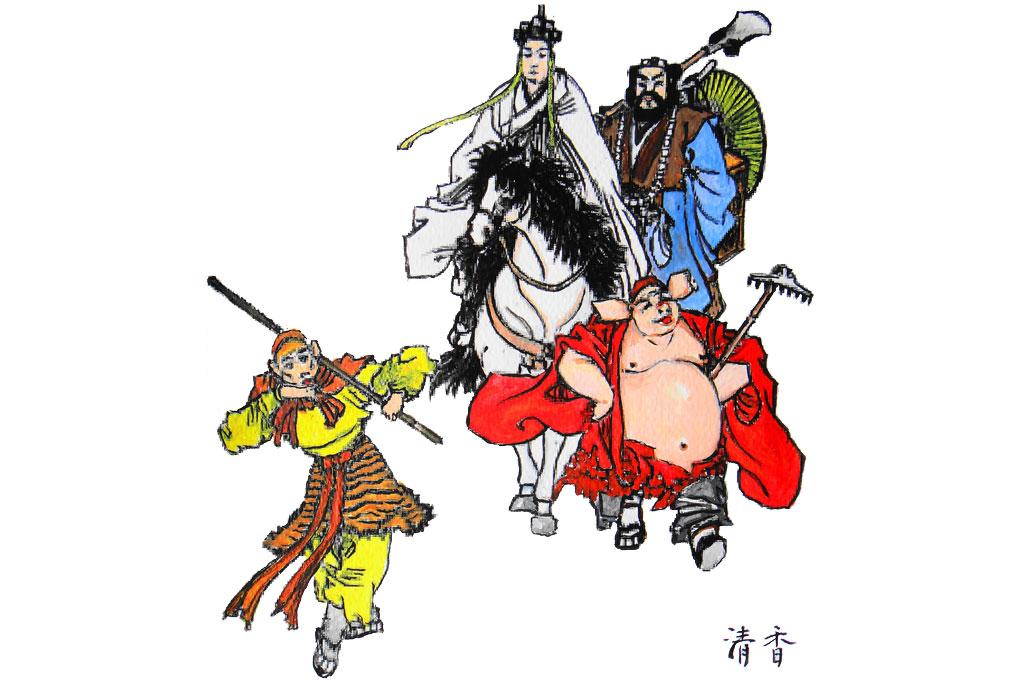The idiom “True scripture is hard to acquire,” which is still widely used today in both spoken and written Chinese, originated from one of the four masterpiece novels in Chinese history “Journey to the West.” This novel is based on Monk Xuan Zang’s historical journey to India to acquire true Buddhist scriptures.
Historically, the Tang monk Xuan Zang overcame various hardships, dangers, and temptations until he finally arrived in India to obtain authentic Buddhist scriptures. In the novel, the challenges of his journey were embodied in and manifested through various demons and monsters, which illustrate how obtaining true teachings is not easily won.
Different aspects of a cultivator or devotee, in this case Xuan Zang, are represented by four main characters in the novel—the Tang monk himself and his three disciples Sun Wukong (the Monkey King), Zhu Bajie (Pigsy), and Sha Wujing (Sandy).
Xuan Zang represents righteousness and devout spirituality; the Monkey King is brave and brilliant, yet quick-tempered; Pigsy represents human weaknesses such as the desires for beauty, rich food, and comforts; and Sandy is quiet, hardworking, and modest. To integrate the strengths and suppress the weaknesses of the team also poses multiple challenges to the journey of obtaining the true scriptures.
The phrase 真經難取 (Zhēn Jīng Nán Qǔ) first appeared in a chapter in the novel in which a demon impersonates a deity. This imposter tries to turn the Tang monk and his disciples against each other so that it can isolate Xuan Zang and eat him alive.
In this chapter, the demon pretends to be a Bodhisattva and tells the monk, “If you don’t get rid of your ‘evil’ disciple, you will not acquire the true scriptures.” Xuan Zang and his disciples eventually see through the demon’s trick, reunite to eliminate it, and continue their journey to the west to complete their quest.
The phrase precisely describes the perils of the journey of both the real historical figure and the novel character Xuan Zang. It has been widely used to describe how hard it is to get true teachings of something or to learn the essence of something and not receive or perceive a mere imitation.




